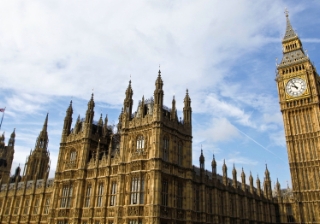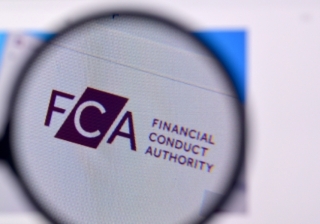Homeownership struggles remain as rent and mortgage costs hit six-month high
17% of renters report saving for a deposit in July, compared to 31% in January.

Rent and mortgage spending increased 5.2% year-on-year in July, the highest increase since February, according to Barclays Property Insights data.
As costs rise, renters are finding their disposable income disproportionately squeezed compared to their homeowner peers, resulting in a loss of confidence, both in getting on the property ladder, and in the housing market more generally.
The fall in confidence is especially prominent among renters, as the number saving for a deposit has reached a six-month low. 17% of renters report saving for a deposit in July, compared to 31% in January. House prices have also overtaken the cost of deposit as the top barrier to homeownership, (38% vs 35%).
Rentflation diminishes aspirations
Nearly two-thirds of renters (62%) have seen, or expect to see their rent increase this year, squeezing their ability to save for a deposit. As a result of cost pressures, only a small proportion (12%) believe that homeownership is within reach within the next year, slightly increasing to 16% who believe it will be possible within five years (19% in June).
Affordability pressures are also limiting choices, as nearly four in 10 (37%) report they are unable to afford to buy a home in the area where they currently rent or would like to live in the future. Costs are also impacting desire to own a home, with three in 10 renters (28%) reporting to be uninterested in homeownership, the highest figure so far this year.
Fewer than a fifth (17%) are actively building a house deposit, the lowest proportion this year, from a high of 31% in January 2025. Some of the most popular ways to save include reducing discretionary spending (14%), cutting back on holidays (11%) or using a side hustle to generate extra income (8%).
Cost advantage for mortgage payers
In the wake of a reduction in interest rates this year, more than half (55%) of all consumers believe renting a property is more expensive than paying a mortgage. This rises to 61% of homeowners, versus 42% of renters, perhaps because owners are more likely to have experienced both circumstances.
Property costs are disproportionately eating into income: housing accounts for almost a third (30.8%) of renters’ take-home pay, whereas homeowners report spending just over a quarter (26.6%) of their earnings on their mortgage. Whilst homeowners will face additional costs such as renovations and certain bills, income levels differ of those surveyed; homeowners are more affluent, with an average reported gross income of £37,775 versus £23,562 for renters.
As a result, a quarter (26%) of renters say they are currently struggling to afford their monthly payments, compared to the one in six (15%) homeowners who feel the same way about their mortgage. Almost half of renters (45%) report adjusting their spending habits to ensure they can continue to afford their housing costs.
Renters save now, borrow later
In order to make their first home as affordable as possible, almost half of those looking to buy (45%) would rather save as much as possible for their deposit, to reduce future mortgage repayments. Conversely, just 12% would consider getting onto the property ladder with a smaller deposit and face higher borrowing costs. This also influences choice of home, with a third (34%) willing to move to a smaller property in order to borrow less.
However, some would put all their capital behind a future home. One in seven (16%) say they would use all their savings in order to get on the ladder, rising to a fifth (20%) amongst millennials.
Jatin Patel, head of mortgages, savings and insurance at Barclays, said: “Many people dream to one day own a home, but our latest findings highlight how renters are finding it ever harder to save for a deposit while keeping up with rising costs. More positively though, we’re still seeing savers create strong habits, and consider carefully the balance between getting into the market quickly with a lower deposit or trying to minimise monthly repayments in the longer term."
Will Hobbs, managing director of Barclays Private Bank and Wealth Management, said: “The UK economy remains in a better place than the public debate would suggest. Many of these talking heads seem narrowly fixated only on what could go wrong for society, the economy and the future of both, using frequently questionable evidence in support. While there is, as usual, much to worry about, the fact that real (inflation adjusted) household incomes continue to grow briskly remains an important positive, as is the still substantial arsenal of ‘excess’ savings.
“The key to unlocking this pent-up spending power is confidence, a nebulous factor both hard to measure and even harder to forecast. Those trying for a balanced view of the future will remember that in terms of forecasting success, the blind optimists would have trounced the sober pessimists for most of the last few hundred years on the economy both in the UK and globally.”

Breaking news
Direct to your inbox:
More
stories
you'll love:
This week's biggest stories:
Budget
Budget: Government introduces mansion tax on high-value homes

Budget
Budget: Government introduces £2,000 salary sacrifice cap

Lifetime Isa
Budget: Lifetime ISA to be scrapped in favour of new first-time buyer ISA

Budget
Budget: Property income tax to rise by 2%

FCA
Firms required to report complaints involving vulnerable customers under simplified FCA rules

Santander
Santander joins mortgage price war with new rates from 3.51%
